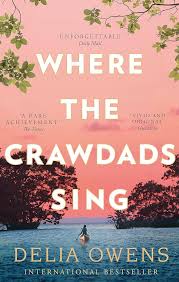12. Pennies and Grits
byIn Chapter 16, titled “Pennies and Grits,” set in 1956, Kya Clark’s world is one of isolation, grief, and an overwhelming desire for connection. Abandoned by her family, Kya spends her days in the marshlands, alone except for the company of nature. Her sense of longing for human companionship drives her to seek out Tate, a boy who had once helped her navigate the marsh three years prior. Despite spotting him fishing one day, Kya hesitates to approach him, torn between the pull of wanting companionship and the fear of rejection, a reflection of her deep-seated emotional scars from years of abandonment. Her heart is heavy with the weight of loneliness, and her mind swirls with doubt, but her yearning to feel understood drives her to continue hoping for some connection, even if it feels like an unreachable dream.
Kya’s days are marked by a simple but harsh existence. She wears old, worn-out overalls and walks barefoot, which underscores the harshness of her environment and the sparse resources available to her. At one point, she finds herself trying on her mother’s old sundress—a piece of clothing that was once a symbol of maternal care and affection—only to realize its impracticality for her life in the swamp. With the weight of her solitude pressing down on her, she puts the dress back, acknowledging that it no longer fits the life she must lead. It serves as a symbol of the gap between the world she yearns for and the harsh reality she faces every day. The realization marks a moment of emotional growth for Kya, where she begins to understand the deeper conflict within her: her desire for the comfort of family, while coming to terms with its absence.
As the chapter progresses, Kya’s survival instincts are put to the test when Jumpin’, one of the few people she interacts with, tells her he can no longer purchase her mussels due to his limited quota. With a dwindling source of income, Kya faces the stark reality that she must find another way to provide for herself. Drawing on the skills she learned from her father, she resorts to smoking fish, despite knowing that the fish may not be the most appealing to others. However, Jumpin’ agrees to give them a try, offering to sell them on consignment—a small but critical gesture that offers Kya a temporary lifeline. It shows her that, despite her isolation, there are people in her world willing to help her, even if only in small ways, and that small acts of kindness can make a world of difference.
Mabel, Jumpin’s wife, goes even further by offering to cook the fish and arranging for the local church to provide Kya with some of the goods she desperately needs. While Mabel is uncertain whether anyone will buy the smoked fish, she does not hesitate to lend a helping hand, demonstrating a level of generosity and concern that Kya had not expected. This act of kindness marks a turning point in Kya’s understanding of human connection, as she begins to experience the warmth and support of the community she had long distanced herself from. It is in this exchange that Kya finds a renewed sense of hope, as she realizes that despite the years of isolation, the possibility of forming meaningful connections still exists.
The chapter delves deeper into Kya’s emotional and physical resilience, particularly when she takes it upon herself to restore her mother’s garden. This act symbolizes her determination to reclaim some control over her life and create a sense of stability amidst the chaos of her circumstances. Finding an old barrette that once belonged to her mother stirs up a whirlwind of emotions for Kya, reminding her of the family she lost. Yet, as she holds the barrette, a quiet acceptance begins to settle within her. She realizes that although her mother is gone, she must continue forward and live the life she has carved for herself in the swamp.
The final moments of the chapter show Kya returning to Jumpin’s wharf to find the promised goods waiting for her. This simple act of generosity—an unexpected kindness—is a profound moment for Kya, as it marks the beginning of her understanding that there is more to the world than her isolation. The goods symbolize not only her survival but also the recognition that even in her lonely world, human connection is possible. As the chapter closes, Kya’s perception of her place in the world shifts, and she begins to consider the idea of trust and vulnerability once again, even though it comes with its own fears. In this chapter, Kya takes significant steps toward healing and self-empowerment, showing the importance of human kindness in the face of solitude and hardship.


